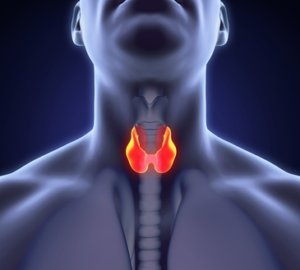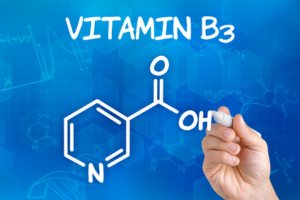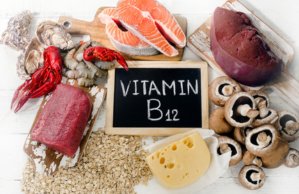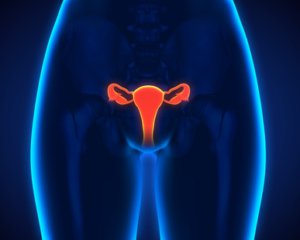afterLoad (456.3KB) (1.48ms)
afterInitialise (1.27MB) (41.26ms)
afterRoute (827.66KB) (13.3ms)
beforeRenderComponent com_content (35.2KB) (3.87ms)
Before Access::preloadComponents (all components) (67.27KB) (1.48ms)
After Access::preloadComponents (all components) (98.07KB) (2.99ms)
Before Access::preloadPermissions (com_content) (1.6KB) (13μs)
After Access::preloadPermissions (com_content) (3.29MB) (28.4ms)
Before Access::getAssetRules (id:62 name:com_content.category.20) (130.65KB) (109μs)
After Access::getAssetRules (id:62 name:com_content.category.20) (7.38KB) (3.26ms)
Before Access::getAssetRules (id:8 name:com_content) (51.77KB) (46.33ms)
After Access::getAssetRules (id:8 name:com_content) (6.17KB) (26μs)
afterRenderComponent com_content (1.54MB) (252ms)
afterDispatch (32.39KB) (5.17ms)
beforeRenderRawModule mod_articles_category (READ MORE...) (398.66KB) (18.84ms)
afterRenderRawModule mod_articles_category (READ MORE...) (92.38KB) (194ms)
beforeRenderRawModule mod_custom (BOOST YOUR IMMUNE DEFENSE) (6.45KB) (28μs)
afterRenderRawModule mod_custom (BOOST YOUR IMMUNE DEFENSE) (4.42KB) (192μs)
beforeRenderRawModule mod_articles_latest (Latest news) (976B) (14μs)
afterRenderRawModule mod_articles_latest (Latest news) (51.22KB) (148ms)
beforeRenderRawModule mod_tags_popular (Search) (2.09KB) (22μs)
afterRenderRawModule mod_tags_popular (Search) (28KB) (90.22ms)
beforeRenderRawModule mod_custom (the Vitamin and Mineral Guide) (960B) (29μs)
afterRenderRawModule mod_custom (the Vitamin and Mineral Guide) (1.02KB) (47μs)
beforeRenderRawModule mod_custom (Weight loss that works) (736B) (12μs)
afterRenderRawModule mod_custom (Weight loss that works) (928B) (24μs)
beforeRenderRawModule mod_custom (Get additionel and more detailed knowledge ) (752B) (10μs)
afterRenderRawModule mod_custom (Get additionel and more detailed knowledge ) (944B) (19μs)
beforeRenderRawModule mod_custom (Q10 goes by many names) (736B) (9μs)
afterRenderRawModule mod_custom (Q10 goes by many names) (928B) (18μs)
beforeRenderRawModule mod_custom (Check this before you buy a Q10 product) (752B) (9μs)
afterRenderRawModule mod_custom (Check this before you buy a Q10 product) (944B) (17μs)
beforeRenderRawModule mod_custom (Are you taking supplements) (736B) (9μs)
afterRenderRawModule mod_custom (Are you taking supplements) (2.28KB) (17μs)
beforeRenderRawModule mod_custom (Antiaging) (720B) (9μs)
afterRenderRawModule mod_custom (Antiaging) (912B) (16μs)
beforeRenderRawModule mod_custom (Exercise) (720B) (8μs)
afterRenderRawModule mod_custom (Exercise) (912B) (17μs)
beforeRenderRawModule mod_custom (Useful Links) (720B) (8μs)
afterRenderRawModule mod_custom (Useful Links) (1.02KB) (18μs)
beforeRenderModule mod_articles_category (READ MORE...) (268.2KB) (2.15ms)
afterRenderModule mod_articles_category (READ MORE...) (1.25KB) (67μs)
beforeRenderModule mod_custom (BOOST YOUR IMMUNE DEFENSE) (6.81KB) (15μs)
afterRenderModule mod_custom (BOOST YOUR IMMUNE DEFENSE) (1.28KB) (26μs)
beforeRenderModule mod_articles_latest (Latest news) (592B) (11μs)
afterRenderModule mod_articles_latest (Latest news) (1.27KB) (21μs)
beforeRenderModule mod_tags_popular (Search) (1.73KB) (12μs)
afterRenderModule mod_tags_popular (Search) (1.27KB) (19μs)
beforeRenderModule mod_custom (the Vitamin and Mineral Guide) (1.31KB) (10μs)
afterRenderModule mod_custom (the Vitamin and Mineral Guide) (1.28KB) (19μs)
beforeRenderModule mod_custom (Weight loss that works) (336B) (8μs)
afterRenderModule mod_custom (Weight loss that works) (1.27KB) (19μs)
beforeRenderModule mod_custom (Get additionel and more detailed knowledge ) (368B) (8μs)
afterRenderModule mod_custom (Get additionel and more detailed knowledge ) (1.3KB) (19μs)
beforeRenderModule mod_custom (Q10 goes by many names) (336B) (9μs)
afterRenderModule mod_custom (Q10 goes by many names) (1.27KB) (19μs)
beforeRenderModule mod_custom (Check this before you buy a Q10 product) (352B) (8μs)
afterRenderModule mod_custom (Check this before you buy a Q10 product) (1.28KB) (19μs)
beforeRenderModule mod_custom (Are you taking supplements) (352B) (8μs)
afterRenderModule mod_custom (Are you taking supplements) (1.28KB) (19μs)
beforeRenderModule mod_custom (Antiaging) (336B) (8μs)
afterRenderModule mod_custom (Antiaging) (1.27KB) (19μs)
beforeRenderModule mod_custom (Exercise) (336B) (9μs)
afterRenderModule mod_custom (Exercise) (1.25KB) (19μs)
beforeRenderModule mod_custom (Useful Links) (336B) (8μs)
afterRenderModule mod_custom (Useful Links) (3.77KB) (20μs)
beforeRenderRawModule mod_menu (Main Menu - English) (37.51KB) (761μs)
afterRenderRawModule mod_menu (Main Menu - English) (190.16KB) (1.61ms)
beforeRenderModule mod_menu (Main Menu - English) (720B) (4μs)
afterRenderModule mod_menu (Main Menu - English) (4.86KB) (53μs)
beforeRenderRawModule mod_languages (Sprogskift) (3.94KB) (18μs)
afterRenderRawModule mod_languages (Sprogskift) (21.8KB) (1.51ms)
beforeRenderModule mod_languages (Sprogskift) (720B) (5μs)
afterRenderModule mod_languages (Sprogskift) (5.31KB) (21μs)
beforeRenderRawModule mod_finder () (6.34KB) (11μs)
afterRenderRawModule mod_finder () (132.96KB) (1.6ms)
beforeRenderModule mod_finder () (704B) (5μs)
afterRenderModule mod_finder () (3.29KB) (43μs)
beforeRenderRawModule mod_custom () (6.62KB) (141μs)
afterRenderRawModule mod_custom () (26.52KB) (847μs)
beforeRenderModule mod_custom () (704B) (6μs)
afterRenderModule mod_custom () (1.23KB) (49μs)
beforeRenderRawModule mod_menu (Main Menu - English) (5.07KB) (101μs)
afterRenderRawModule mod_menu (Main Menu - English) (6.3KB) (730μs)
beforeRenderModule mod_menu (Main Menu - English) (720B) (4μs)
afterRenderModule mod_menu (Main Menu - English) (1.25KB) (40μs)
beforeRenderRawModule mod_languages (Sprogskift Mobil) (912B) (17μs)
afterRenderRawModule mod_languages (Sprogskift Mobil) (3.89KB) (631μs)
beforeRenderModule mod_languages (Sprogskift Mobil) (720B) (3μs)
afterRenderModule mod_languages (Sprogskift Mobil) (1.27KB) (28μs)
beforeRenderRawModule mod_finder () (2.3KB) (9μs)
afterRenderRawModule mod_finder () (6.29KB) (646μs)
beforeRenderModule mod_finder () (704B) (5μs)
afterRenderModule mod_finder () (1.23KB) (46μs)
beforeRenderRawModule mod_custom () (8.66KB) (176μs)
afterRenderRawModule mod_custom () (904B) (176μs)
beforeRenderModule mod_custom () (704B) (3μs)
afterRenderModule mod_custom () (2.43KB) (26μs)
beforeRenderRawModule mod_custom () (688B) (84μs)
afterRenderRawModule mod_custom () (896B) (107μs)
beforeRenderModule mod_custom () (704B) (3μs)
afterRenderModule mod_custom () (2.71KB) (28μs)
afterRender (278.2KB) (5.53ms)
| 1 x afterRenderComponent com_content (1.54MB) (29.05%) | 252.40ms |
| 1 x afterRenderRawModule mod_articles_category (READ MORE...) (92.38KB) (22.28%) | 193.60ms |
| 1 x afterRenderRawModule mod_articles_latest (Latest news) (51.22KB) (16.99%) | 147.66ms |
| 1 x afterRenderRawModule mod_tags_popular (Search) (28KB) (10.38%) | 90.22ms |
| 1 x Before Access::getAssetRules (id:8 name:com_content) (51.77KB) (5.33%) | 46.33ms |
| 1 x afterInitialise (1.27MB) (4.75%) | 41.26ms |
| 1 x After Access::preloadPermissions (com_content) (3.29MB) (3.27%) | 28.40ms |
| 1 x beforeRenderRawModule mod_articles_category (READ MORE...) (398.66KB) (2.17%) | 18.84ms |
| 1 x afterRoute (827.66KB) (1.53%) | 13.30ms |
| 1 x afterRender (278.2KB) (0.64%) | 5.53ms |
| 1 x afterDispatch (32.39KB) (0.59%) | 5.17ms |
| 1 x beforeRenderComponent com_content (35.2KB) (0.45%) | 3.87ms |
| 1 x After Access::getAssetRules (id:62 name:com_content.category.20) (7.38KB) (0.37%) | 3.26ms |
| 1 x After Access::preloadComponents (all components) (98.07KB) (0.34%) | 2.99ms |
| 1 x beforeRenderModule mod_articles_category (READ MORE...) (268.2KB) (0.25%) | 2.15ms |
| 1 x afterRenderRawModule mod_menu (Main Menu - English) (190.16KB) (0.18%) | 1.61ms |
| 1 x afterRenderRawModule mod_finder () (132.96KB) (0.18%) | 1.60ms |
| 1 x afterRenderRawModule mod_languages (Sprogskift) (21.8KB) (0.17%) | 1.51ms |
| 1 x afterLoad (456.3KB) (0.17%) | 1.48ms |
| 1 x Before Access::preloadComponents (all components) (67.27KB) (0.17%) | 1.48ms |
| 1 x afterRenderRawModule mod_custom () (26.52KB) (0.1%) | 847μs |
| 1 x beforeRenderRawModule mod_menu (Main Menu - English) (37.51KB) (0.09%) | 761μs |
| 1 x afterRenderRawModule mod_menu (Main Menu - English) (6.3KB) (0.08%) | 730μs |
| 1 x afterRenderRawModule mod_finder () (6.29KB) (0.07%) | 646μs |
| 1 x afterRenderRawModule mod_languages (Sprogskift Mobil) (3.89KB) (0.07%) | 631μs |
| 1 x afterRenderRawModule mod_custom (BOOST YOUR IMMUNE DEFENSE) (4.42KB) (0.02%) | 192μs |
| 1 x beforeRenderRawModule mod_custom () (8.66KB) (0.02%) | 176μs |
| 1 x afterRenderRawModule mod_custom () (904B) (0.02%) | 176μs |
| 1 x beforeRenderRawModule mod_custom () (6.62KB) (0.02%) | 141μs |
| 1 x Before Access::getAssetRules (id:62 name:com_content.category.20) (130.65KB) (0.01%) | 109μs |
| 1 x afterRenderRawModule mod_custom () (896B) (0.01%) | 107μs |
| 1 x beforeRenderRawModule mod_menu (Main Menu - English) (5.07KB) (0.01%) | 101μs |
| 1 x beforeRenderRawModule mod_custom () (688B) (0.01%) | 84μs |
| 1 x afterRenderModule mod_articles_category (READ MORE...) (1.25KB) (0.01%) | 67μs |
| 1 x afterRenderModule mod_menu (Main Menu - English) (4.86KB) (0.01%) | 53μs |
| 1 x afterRenderModule mod_custom () (1.23KB) (0.01%) | 49μs |
| 1 x afterRenderRawModule mod_custom (the Vitamin and Mineral Guide) (1.02KB) (0.01%) | 47μs |
| 1 x afterRenderModule mod_finder () (1.23KB) (0.01%) | 46μs |
| 1 x afterRenderModule mod_finder () (3.29KB) (0%) | 43μs |
| 1 x afterRenderModule mod_menu (Main Menu - English) (1.25KB) (0%) | 40μs |
| 1 x beforeRenderRawModule mod_custom (the Vitamin and Mineral Guide) (960B) (0%) | 29μs |
| 1 x beforeRenderRawModule mod_custom (BOOST YOUR IMMUNE DEFENSE) (6.45KB) (0%) | 28μs |
| 1 x afterRenderModule mod_languages (Sprogskift Mobil) (1.27KB) (0%) | 28μs |
| 1 x afterRenderModule mod_custom () (2.71KB) (0%) | 28μs |
| 1 x After Access::getAssetRules (id:8 name:com_content) (6.17KB) (0%) | 26μs |
| 1 x afterRenderModule mod_custom (BOOST YOUR IMMUNE DEFENSE) (1.28KB) (0%) | 26μs |
| 1 x afterRenderModule mod_custom () (2.43KB) (0%) | 26μs |
| 1 x afterRenderRawModule mod_custom (Weight loss that works) (928B) (0%) | 24μs |
| 1 x beforeRenderRawModule mod_tags_popular (Search) (2.09KB) (0%) | 22μs |
| 1 x afterRenderModule mod_articles_latest (Latest news) (1.27KB) (0%) | 21μs |
| 1 x afterRenderModule mod_languages (Sprogskift) (5.31KB) (0%) | 21μs |
| 1 x afterRenderModule mod_custom (Useful Links) (3.77KB) (0%) | 20μs |
| 1 x afterRenderModule mod_tags_popular (Search) (1.27KB) (0%) | 19μs |
| 1 x afterRenderModule mod_custom (Weight loss that works) (1.27KB) (0%) | 19μs |
| 1 x afterRenderModule mod_custom (Get additionel and more detailed knowledge ) (1.3KB) (0%) | 19μs |
| 1 x afterRenderModule mod_custom (Check this before you buy a Q10 product) (1.28KB) (0%) | 19μs |
| 1 x afterRenderModule mod_custom (Are you taking supplements) (1.28KB) (0%) | 19μs |
| 1 x afterRenderModule mod_custom (Antiaging) (1.27KB) (0%) | 19μs |
| 1 x afterRenderRawModule mod_custom (Get additionel and more detailed knowledge ) (944B) (0%) | 19μs |
| 1 x afterRenderModule mod_custom (the Vitamin and Mineral Guide) (1.28KB) (0%) | 19μs |
| 1 x afterRenderModule mod_custom (Q10 goes by many names) (1.27KB) (0%) | 19μs |
| 1 x afterRenderModule mod_custom (Exercise) (1.25KB) (0%) | 19μs |
| 1 x beforeRenderRawModule mod_languages (Sprogskift) (3.94KB) (0%) | 18μs |
| 1 x afterRenderRawModule mod_custom (Q10 goes by many names) (928B) (0%) | 18μs |
| 1 x afterRenderRawModule mod_custom (Useful Links) (1.02KB) (0%) | 18μs |
| 1 x afterRenderRawModule mod_custom (Check this before you buy a Q10 product) (944B) (0%) | 17μs |
| 1 x afterRenderRawModule mod_custom (Are you taking supplements) (2.28KB) (0%) | 17μs |
| 1 x afterRenderRawModule mod_custom (Exercise) (912B) (0%) | 17μs |
| 1 x beforeRenderRawModule mod_languages (Sprogskift Mobil) (912B) (0%) | 17μs |
| 1 x afterRenderRawModule mod_custom (Antiaging) (912B) (0%) | 16μs |
| 1 x beforeRenderModule mod_custom (BOOST YOUR IMMUNE DEFENSE) (6.81KB) (0%) | 15μs |
| 1 x beforeRenderRawModule mod_articles_latest (Latest news) (976B) (0%) | 14μs |
| 1 x Before Access::preloadPermissions (com_content) (1.6KB) (0%) | 13μs |
| 3 x beforeRenderModule mod_custom () (704B) (0%) | 12μs |
| 1 x beforeRenderRawModule mod_custom (Weight loss that works) (736B) (0%) | 12μs |
| 1 x beforeRenderModule mod_tags_popular (Search) (1.73KB) (0%) | 12μs |
| 1 x beforeRenderModule mod_articles_latest (Latest news) (592B) (0%) | 11μs |
| 1 x beforeRenderRawModule mod_finder () (6.34KB) (0%) | 11μs |
| 1 x beforeRenderRawModule mod_custom (Get additionel and more detailed knowledge ) (752B) (0%) | 10μs |
| 1 x beforeRenderModule mod_custom (the Vitamin and Mineral Guide) (1.31KB) (0%) | 10μs |
| 2 x beforeRenderModule mod_finder () (704B) (0%) | 10μs |
| 1 x beforeRenderRawModule mod_custom (Q10 goes by many names) (736B) (0%) | 9μs |
| 1 x beforeRenderRawModule mod_custom (Check this before you buy a Q10 product) (752B) (0%) | 9μs |
| 1 x beforeRenderModule mod_custom (Q10 goes by many names) (336B) (0%) | 9μs |
| 1 x beforeRenderModule mod_custom (Exercise) (336B) (0%) | 9μs |
| 1 x beforeRenderRawModule mod_finder () (2.3KB) (0%) | 9μs |
| 1 x beforeRenderRawModule mod_custom (Are you taking supplements) (736B) (0%) | 9μs |
| 1 x beforeRenderRawModule mod_custom (Antiaging) (720B) (0%) | 9μs |
| 1 x beforeRenderRawModule mod_custom (Exercise) (720B) (0%) | 8μs |
| 1 x beforeRenderRawModule mod_custom (Useful Links) (720B) (0%) | 8μs |
| 1 x beforeRenderModule mod_custom (Weight loss that works) (336B) (0%) | 8μs |
| 1 x beforeRenderModule mod_custom (Check this before you buy a Q10 product) (352B) (0%) | 8μs |
| 1 x beforeRenderModule mod_custom (Useful Links) (336B) (0%) | 8μs |
| 2 x beforeRenderModule mod_menu (Main Menu - English) (720B) (0%) | 8μs |
| 1 x beforeRenderModule mod_custom (Get additionel and more detailed knowledge ) (368B) (0%) | 8μs |
| 1 x beforeRenderModule mod_custom (Are you taking supplements) (352B) (0%) | 8μs |
| 1 x beforeRenderModule mod_custom (Antiaging) (336B) (0%) | 8μs |
| 1 x beforeRenderModule mod_languages (Sprogskift) (720B) (0%) | 5μs |
| 1 x beforeRenderModule mod_languages (Sprogskift Mobil) (720B) (0%) | 3μs |
 An estimated 500,000 Danes suffer from some kind of thyroid disorder, the most common of which is Hashimoto’s disease, which slows down your metabolism. The formation and activation of thyroid hormones depend on iodine and selenium, and it is essential that the two nutrients are properly balanced. Having too little or too much iodine increases your risk of Hashimoto’s disease, and the same is the case with selenium, a nutrient that many people lack.
An estimated 500,000 Danes suffer from some kind of thyroid disorder, the most common of which is Hashimoto’s disease, which slows down your metabolism. The formation and activation of thyroid hormones depend on iodine and selenium, and it is essential that the two nutrients are properly balanced. Having too little or too much iodine increases your risk of Hashimoto’s disease, and the same is the case with selenium, a nutrient that many people lack.







 Pregnant women are advised not to smoke, as this may harm the unborn baby. However, not all pregnant smokers are able to quit their habit. A new American study shows that
Pregnant women are advised not to smoke, as this may harm the unborn baby. However, not all pregnant smokers are able to quit their habit. A new American study shows that  Alzheimer’s disease causes the brain to malfunction and is therefore the leading cause of dementia. According to a new American study, a particular form of
Alzheimer’s disease causes the brain to malfunction and is therefore the leading cause of dementia. According to a new American study, a particular form of  Patients who have been diagnosed with Parkinson’s disease and who have low levels of
Patients who have been diagnosed with Parkinson’s disease and who have low levels of 
 Fluid depletion (or volume depletion) lowers your performance and may be life-threatening in worst case. However, it can be every bit as dangerous to drink too much water. In fact, there have been several deaths as a result of this among athletes. Another thing is that one should not just focus on water. When engaging in strenuous sport, there is a very delicate balance between fluids and minerals. Many sports beverages contain too much sugar and caffeine that often do more harm than good, so the question is how much liquid you need when engaging in the different types of sport. Read more about the subject in the following.
Fluid depletion (or volume depletion) lowers your performance and may be life-threatening in worst case. However, it can be every bit as dangerous to drink too much water. In fact, there have been several deaths as a result of this among athletes. Another thing is that one should not just focus on water. When engaging in strenuous sport, there is a very delicate balance between fluids and minerals. Many sports beverages contain too much sugar and caffeine that often do more harm than good, so the question is how much liquid you need when engaging in the different types of sport. Read more about the subject in the following. Stress is a large problem for many people. It is believed that the majority of people who consult their physician do it because of stress-related problems. Many people try to relieve their stress with sweets, coffee, alcohol, painkillers, and sleeping medication just to get through the day. However, in the long run, this can turn into a vicious cycle that increases your risk of disease and faster ageing. There are dozens of books about stress that can be useful for solving problems and slowing down your pace, but don’t forget that stress is also physiological. It is a condition that deteriorates tissues, burdens the body with free radicals and increases your need for B-vitamins, vitamin C, magnesium, selenium and coenzyme Q10. If you make sure to get the necessary essential nutrients before it is too late, you can cope with more.
Stress is a large problem for many people. It is believed that the majority of people who consult their physician do it because of stress-related problems. Many people try to relieve their stress with sweets, coffee, alcohol, painkillers, and sleeping medication just to get through the day. However, in the long run, this can turn into a vicious cycle that increases your risk of disease and faster ageing. There are dozens of books about stress that can be useful for solving problems and slowing down your pace, but don’t forget that stress is also physiological. It is a condition that deteriorates tissues, burdens the body with free radicals and increases your need for B-vitamins, vitamin C, magnesium, selenium and coenzyme Q10. If you make sure to get the necessary essential nutrients before it is too late, you can cope with more.
 Far more children are diagnosed with psychiatric disorders today. In the past seven years alone, twice as many cases of ADHD, autism, depression, and fear are diagnosed in Denmark. Communities are under pressure to find teachers, educators, psychologists and other relevant people with the right skills.
Far more children are diagnosed with psychiatric disorders today. In the past seven years alone, twice as many cases of ADHD, autism, depression, and fear are diagnosed in Denmark. Communities are under pressure to find teachers, educators, psychologists and other relevant people with the right skills.  It is only natural to expect a nutritional supplement to be absorbed and deliver an effect. However, for this to happen, you must look for products with documentation. Countless multivitamin products and supplements with Q10, selenium, chromium, magnesium, and iron have very poor quality and are not properly absorbed. Our ageing process alone impairs the uptake of vitamins and minerals, and the same is the case if we lack essential fats, have too high calcium levels, or use antacids and other types of medicine – so this also needs to be taken into account.
It is only natural to expect a nutritional supplement to be absorbed and deliver an effect. However, for this to happen, you must look for products with documentation. Countless multivitamin products and supplements with Q10, selenium, chromium, magnesium, and iron have very poor quality and are not properly absorbed. Our ageing process alone impairs the uptake of vitamins and minerals, and the same is the case if we lack essential fats, have too high calcium levels, or use antacids and other types of medicine – so this also needs to be taken into account. According to a large American study, a high dietary intake of vitamin D and calcium is associated with a lower risk of early-onset menopause, where the menstrual periods cease before a woman reaches 45 years of age. Premature menopause affects around 10 percent of women, and the condition increases the risk of impaired fertility, osteoporosis, cardiovascular disease, and earlier cognitive impairment. The prevention of these diseases is also a matter of getting enough sunshine, magnesium, and omega-3.
According to a large American study, a high dietary intake of vitamin D and calcium is associated with a lower risk of early-onset menopause, where the menstrual periods cease before a woman reaches 45 years of age. Premature menopause affects around 10 percent of women, and the condition increases the risk of impaired fertility, osteoporosis, cardiovascular disease, and earlier cognitive impairment. The prevention of these diseases is also a matter of getting enough sunshine, magnesium, and omega-3. It is widely established that women of childbearing age have high levels of estrogen that protect them against cardiovascular disease. However, if they have type 1 diabetes, having high estrogen levels actually increases their risk of these diseases. A group of scientists is therefore planning to investigate whether nutritional supplements with antioxidants can protect diabetics against cardiovascular disease and the premature death caused by these ailments.
It is widely established that women of childbearing age have high levels of estrogen that protect them against cardiovascular disease. However, if they have type 1 diabetes, having high estrogen levels actually increases their risk of these diseases. A group of scientists is therefore planning to investigate whether nutritional supplements with antioxidants can protect diabetics against cardiovascular disease and the premature death caused by these ailments. The majority of chronic ailments, including autoimmune diseases like rheumatoid arthritis, depression, Alzheimer’s disease, diabetes, and cancer, involve inflammation. Science has known for a long time that
The majority of chronic ailments, including autoimmune diseases like rheumatoid arthritis, depression, Alzheimer’s disease, diabetes, and cancer, involve inflammation. Science has known for a long time that